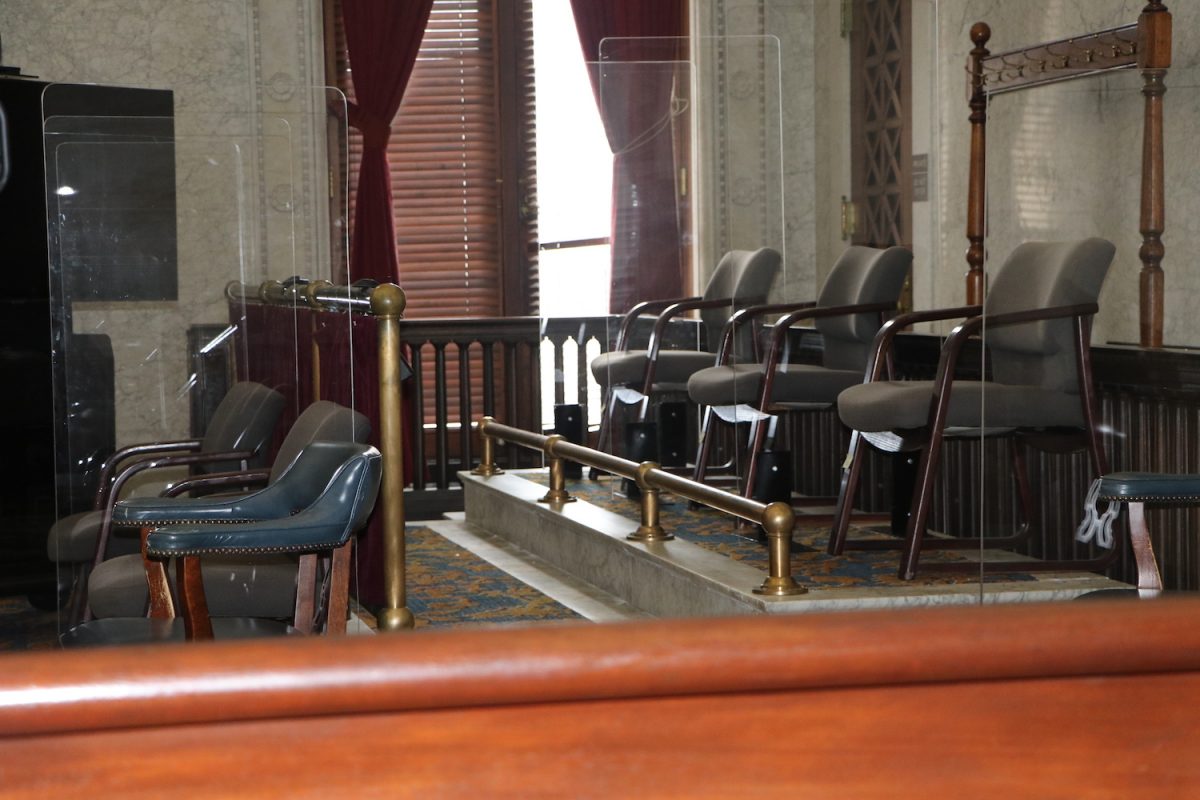
Thank you for reading Baltimore Witness.
Consider making a donation to help us continue our mission.
By
Melaney Lemaster [former]
- August 3, 2022
Court
|
Homicides
|
Shooting
|
Suspects
|
Victims
|
Defense counsel began opening statements during a murder trial, accusing the prosecution of turning the case into a “murder mystery” for the jury.
Tarence Jones, 31, is charged with first-degree murder and using a firearm during a violent crime in connection to the murder of 28-year-old Desmond Williams on June 13, 2021.
Jones defense attorney, Todd Oppenheim, said Aug. 2 that the state had no forensic evidence from the crime scene, and there was no gun found on Jones.
Oppenheim also pointed out that Jones is known as a working man who does not get into trouble.
However, the prosecution bluntly told the jury that Jones was guilty, and he would have had access to the apartment complex because he had signed a lease to rent out a room in the complex days before Williams was murdered. The prosecution also noted that there was evidence of Jones walking around with a gun shaped bag the day of the murder.
The first witness the prosecution presented was a man who dropped Jones off at the complex on the morning of the crime. There was evidence of Jones and the witness in the vehicle the day of the crime.
The next witness, Jones’ sister, told the jury that Jones was her babysitter and sometimes stayed at her home when he babysat. She said her brother wasn’t at her home on the morning of the crime.
Jones was not a violent person, he was a working man and she felt safe leaving Jones with her children, said Jones sister during defense cross exam.
Following the testimony from Jones’ sister, the prosecution called a crime lab technician who recovered physical evidence from the scene of the crime. During her testimony, the crime lab technician informed the jury that shotgun pellets were recovered from the crime scene.
After a Baltimore Police Department detective testified, the prosecutor called the landlord of the apartment complex where Williams had been murdered. The landlord testified that Williams was a longtime tenant on the property, and he had been the only tenant living there until Jones and another prospective tenant showed interest in renting out a room.
The landlord also explained that the apartment was a townhome that had been separated into separate rooms that he would rent out temporarily, giving tenants a passcode to the front entrance which would change every few months or when the home would become vacant. Only Williams, Jones and another prospective tenant knew the passcode to enter into the apartment home, the landlord said.
The witness also testified that he had met with Jones to sign a lease and rent out the apartment days prior to the incident.
During Oppenheim’s cross examination, the landlord revealed that months prior to the incident he had ongoing issues with Williams. Williams was known to be violent, which escalated to the point where the landlord had to file a peace order against Williams. The landlord said he was also going through the process of evicting Williams for overdue rent around the time of the incident.
The witness further testified that Williams caused other past tenants to leave because of his violent behavior. Williams changed the locks to the apartment complex and barricaded the front entrance, the landlord said.
The landlord also said Jones called him to let him know that Williams was injured and needed medical attention, causing the landlord to contact 9-1-1.
According to court documents, Williams was found lying in the foyer of the apartment complex on the 400 block of E. 23rd Street. He had suffered “severe wounds with his bowels, which were visibly displayed outside the torso” and was pronounced dead at the scene. An autopsy later revealed that Williams had died from being shot with a birdshot shotgun.
Jones’ trial is set to continue on Aug. 3.
